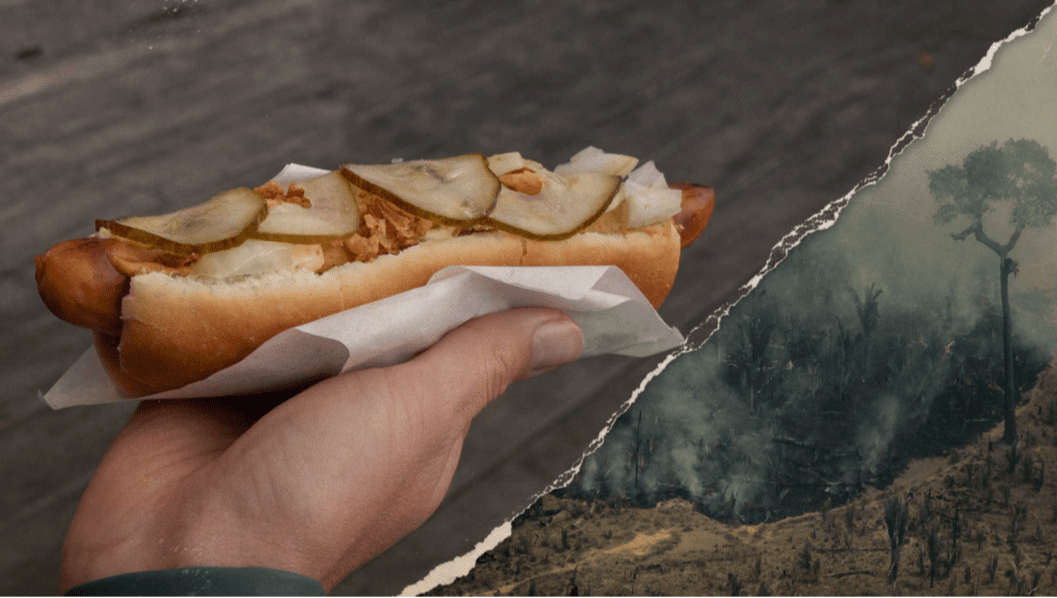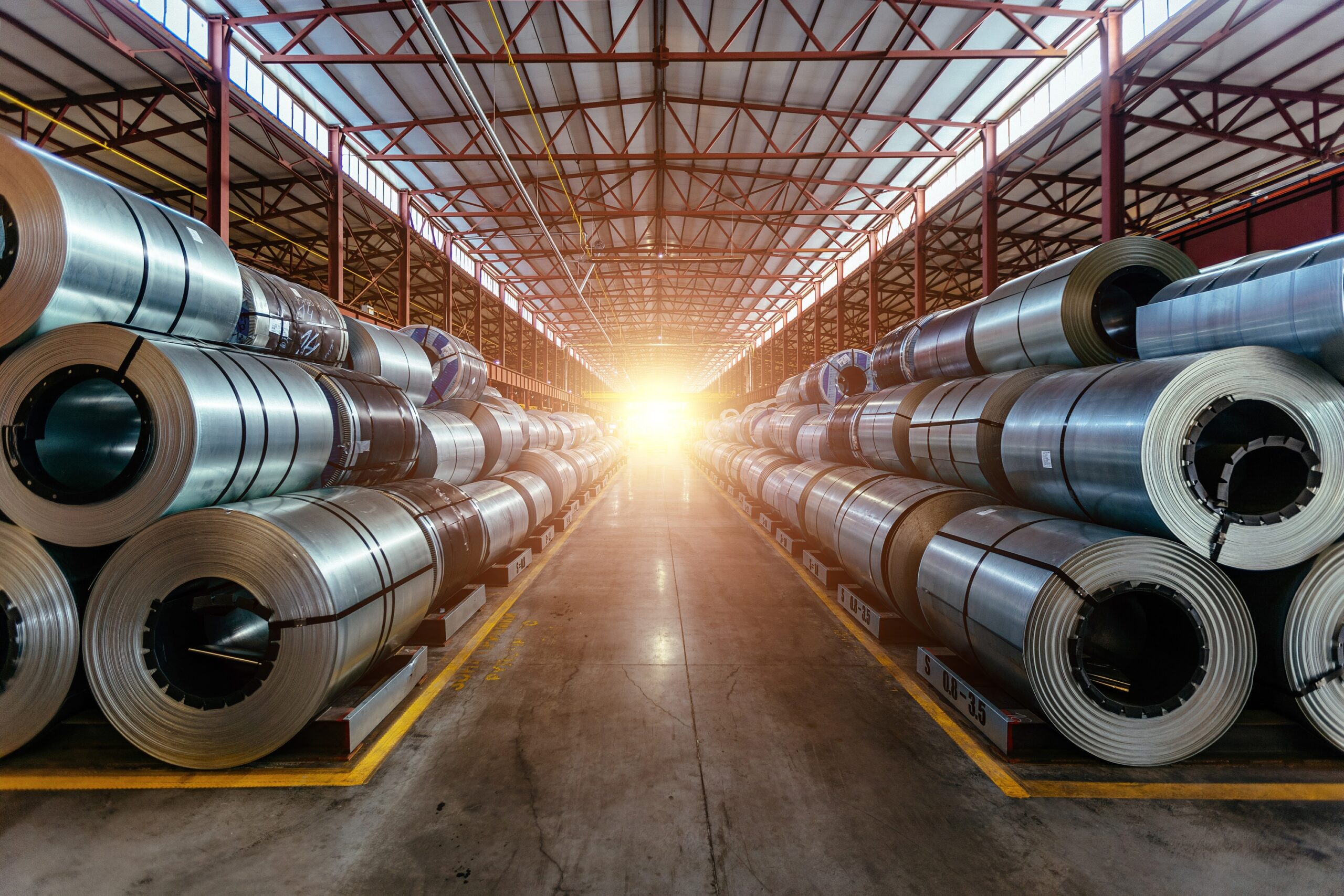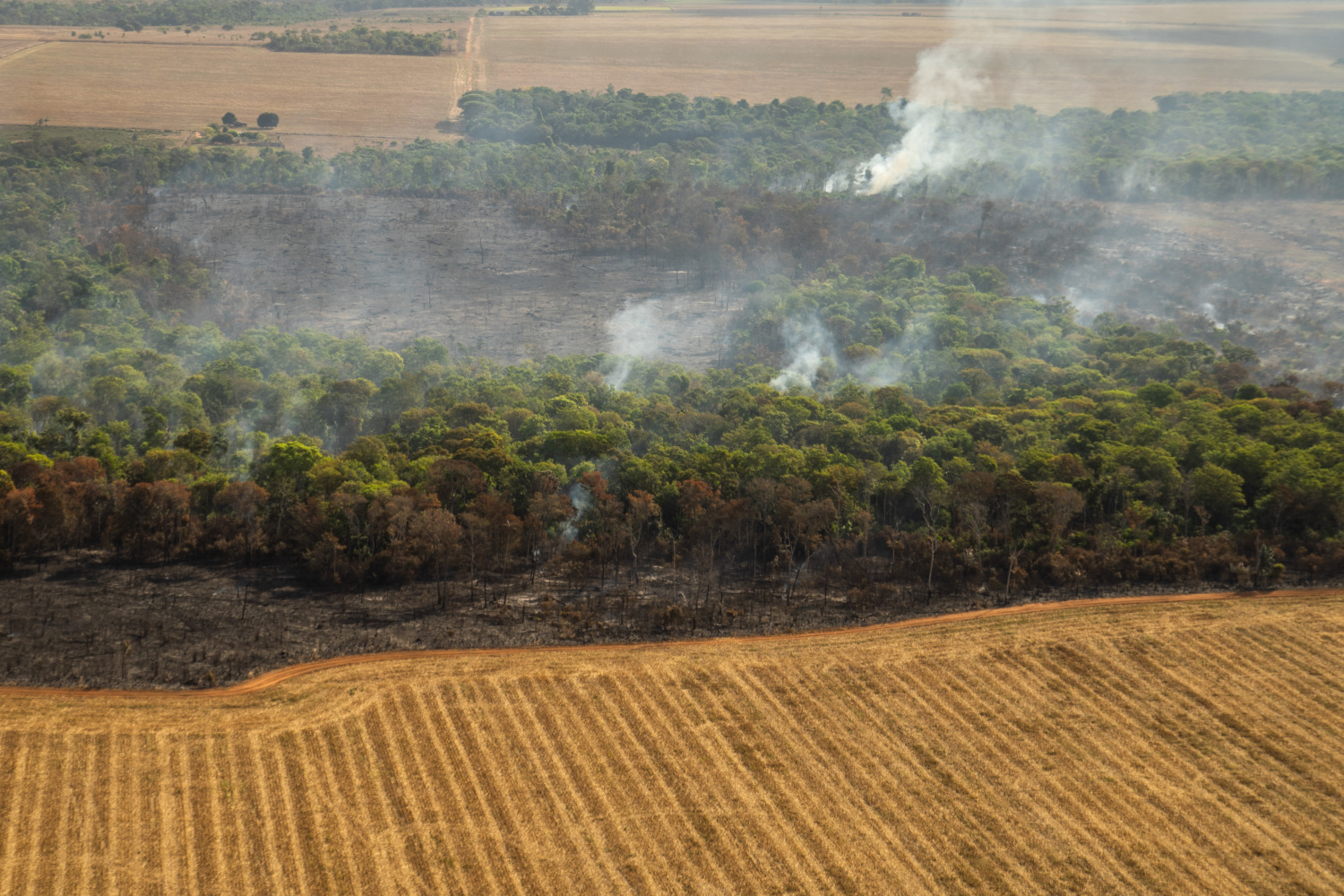
New Report: Pork giant Danish Crown linked to tropical deforestation
Every year, the Danish meat giant Danish Crown produces huge amounts of pork from pigs fed with soy that has come from deforested areas in South America. A new report from Rainforest Foundation Norway, Mighty Earth in the United States, and Forests of the World in Denmark charts the connection between Danish Crown’s soy imports and environmental destruction in South America.
Denmark imports more than 1.7 million tons of soy every year to feed livestock, and about 53 percent of that soy is used as pig feed. 83 percent of these imports comes from South America, mainly Brazil, Argentina, and Paraguay. In these countries, the soy is often grown in areas where tropical forests have previously been cleared and burned.
Deforestation, which in 2019 led to a record number of forest fires in South America, is destroying the habitats of countless animal and plant species, emitting huge amounts of CO2, and depriving indigenous communities of their homes and livelihoods. Soy is one of the primary drivers of deforestation in South America.
The new report, titled “How the Sausage Gets Made,” documents the links between Danish Crown’s soy supply and regions in South America where soy-driven deforestation is occurring. It also calls out Danish Crown for failing to offer a guarantee that its soy has not caused deforestation and for sourcing from Cargill, a global agribusiness with a record of deforestation and ecological destruction so severe that Mighty Earth recently named it the “Worst Company in the World”. Rainforest Foundation Norway, Mighty Earth, and Forests of the World are calling on the company to ensure full traceability of soy in its forthcoming Action Plan for Responsible Soy.
“As Europe’s largest pork producers, Danish Crown has a huge responsibility to ensure that the soy that goes into Danish Crown’s production is produced responsibly, said Forests of the World Campaign Director Gry Bossen. “As long as it does not know where the soy in its supply chain comes from, it cannot avoid being complicit in deforestation and violation of indigenous peoples’ rights in South America. Danish Crown should clearly ensure that its demands and value chains from South America are deforestation-free.”
“While other protein producers in the Norwegian salmon industry recognize that their responsibility goes beyond certified soy volumes for their own production, and demand that their suppliers commit to becoming deforestation-free in all operations, it is disappointing that a Danish meat giant like Danish Crown is setting the bar this low. They should prepare themselves for the future market and give their customers products without any links to deforestation. Certified soy volumes cannot guarantee that” says Ida Breckan Claudi, RFN.
“Danish Crown must be held responsible for the environmental destruction associated with its entire supply chain and partnerships with suppliers like Cargill..” said Mighty Earth Deputy Director Kristin Urquiza. “It is not enough for Danish Crown to pledge a commitment to sustainability. We need to see the company’s sustainability policies aggressively implemented on the ground. Consumers do not want to eat pork products linked to forest fires, tropical deforestation, and human rights abuses.”
90 percent of Danish pork products are exported to countries around the globe. Danish Crown is one of the largest exporters of pigs in the world and one of Europe’s largest pork producers, slaughtering millions of pigs every year. Through a number of subsidiaries, including Tulip Ltd., Danish Crown markets its products in over 130 countries.
“Danish Crown cannot tell us the origin of the soy that goes into their pork products or where the soy that it sources comes from. As Danish Crown does not know the origin of its soy, the company cannot guarantee that its meat production is deforestation-free. It is crucial that Danish Crown ensures total traceability of soy, in order to guarantee that it is deforestation-free,” says Gry Bossen from Forests of the World.
For further information, please contact:
Ida Breckan Claudi, Regnskovsfonden, (+47) 47417174, [email protected]
Jonas Schmidt Hansen, Forests of the World: (+45) 26 25 82 08, [email protected]
Liviya James, Mighty Earth, (+1) 949.246.9808, [email protected]


